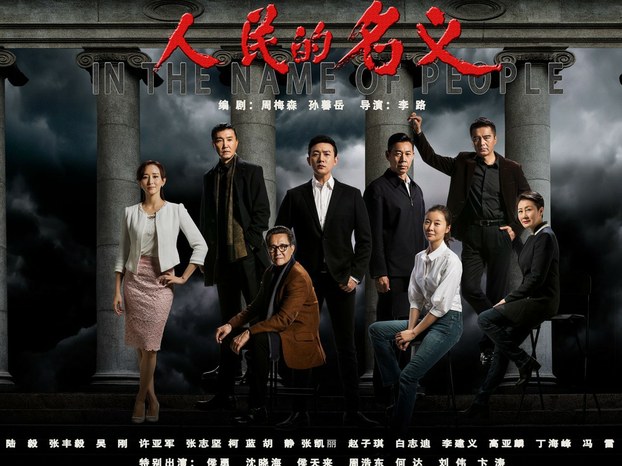Hit Chinese corruption drama In the Name of the People is being sued for RMB 18 million (HK$21 million) over copyright infringement. The case was filed at a Shanghai court last Wednesday.
The show broke China’s decade-long ban on anti-corruption-themed dramas being aired in prime-time, and is the first TV drama to depict the deputy of a national leader as a villain. The popular show first aired in March, and was based on a novel of the same name by Zhou Meisen, the series’ scriptwriter.
The show was produced with the support of China’s TV and Film Production Center under the Supreme People’s Procuratorate, according to the Global Times.

Novelist Liu Santian alleges that the creators of the show and novel plagiarised her 2011 political novel, Anxiang.
According to The Paper, Liu’s complaint to the court said that the conflict in both storylines broke out over the restructuring of an old factory. A sudden explosion at the factory caused the plot to advance, leading to the gradual exposure of high-level corruption.
She told the outlet that the two novels shared similar concepts, plot structures, main characters and relationships, including names of places and characters.
She said that her friends and relatives urged her not to bother with a lawsuit against the popular show: “I was very angry when I heard these comments – I can’t not defend my rights for the sake of the show’s popularity… I hoped that it would not be popular, so I could quietly bring the lawsuit,” she said.
Liu Santian is a 53-year-old novelist who previously worked as a journalist and editor for financial and current events magazines and state broadcaster CCTV, according to Baidu Baike.

Scriptwriter Zhou Meisen told The Beijing News that he paused his work on a sequel to handle the lawsuit.
He denied Liu’s allegations and accused her of swindling him and extortion. He said she may have plagiarised from his previous works, which explored the reform of state-owned enterprises, though he denied ever reading Liu’s novel: “There is no room to mediate – either she loses or I lose, either she pays or I pay.” he told The Paper.
His lawyer said that they were considering countersuing or initiating another lawsuit against Liu.
“I’m an original creator, a serious writer. If there is no just investigation into this kind of malicious lawsuit, it would be a serious blow to the original creator’s work. I’m someone who absolutely cannot accept any insult – she wants 18 million from me, even if it’s only one yuan, I would teach her a lesson.”
The series reached an 8.1 per cent viewing rate and achieved over 30 billion views online – the highest viewing ratings in a decade, according to Sohu.
